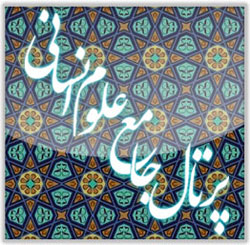A Comparative Study of Romantic Narratives in Nizami's Layla and Majnun and Khosrow and Shirin with an Emphasis on Destiny and Free Will
Keywords:
Nizami Ganjavi, Layla and Majnun, Khosrow and Shirin, destiny, free will, Persian romantic literatureAbstract
Romantic epics in Persian literature, particularly Nizami Ganjavi's works, blend emotional and philosophical narratives, providing a platform to explore concepts like destiny and free will. This study examines the romantic narratives in Layla and Majnun and Khosrow and Shirin, analyzing the roles of destiny and free will in the characters' decisions. In Layla and Majnun, destiny predominates, with characters' fates governed by forces beyond human control. Conversely, Khosrow and Shirin emphasizes individual agency and decision-making. Using textual analysis and comparative narrative structures, the paper explores how Nizami employs the interplay of these concepts to create narrative depth. Furthermore, it examines the impact of these works on literary and cultural transformations of their era and discusses how these themes reflect societal norms. Findings indicate that these epics, with their profound and multi-layered narratives, significantly shaped Persian romantic literature.












